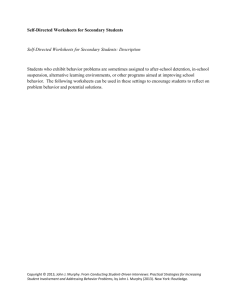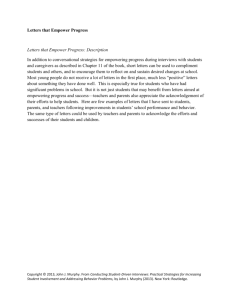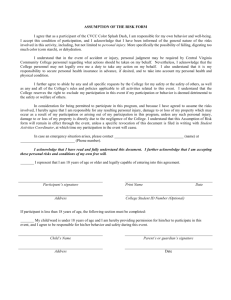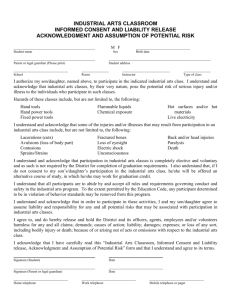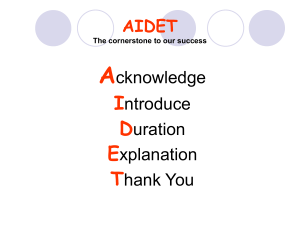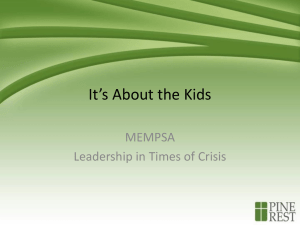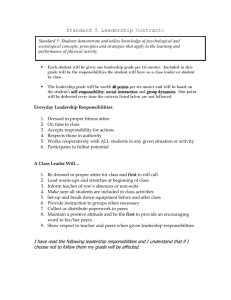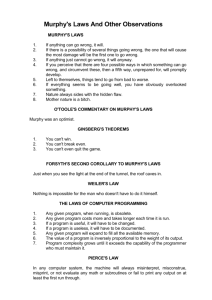Developmental Considerations and Accommodations
advertisement
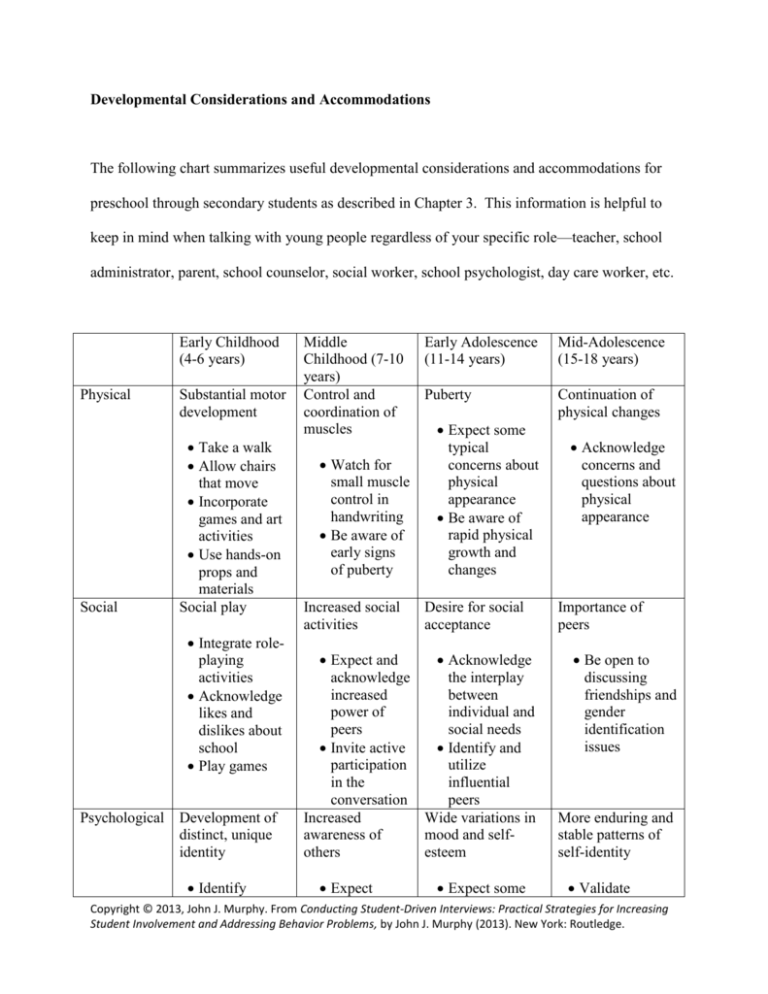
Developmental Considerations and Accommodations The following chart summarizes useful developmental considerations and accommodations for preschool through secondary students as described in Chapter 3. This information is helpful to keep in mind when talking with young people regardless of your specific role—teacher, school administrator, parent, school counselor, social worker, school psychologist, day care worker, etc. Early Childhood (4-6 years) Physical Social Substantial motor development Take a walk Allow chairs that move Incorporate games and art activities Use hands-on props and materials Social play Integrate roleplaying activities Acknowledge likes and dislikes about school Play games Psychological Development of distinct, unique identity Identify Middle Childhood (7-10 years) Control and coordination of muscles Watch for small muscle control in handwriting Be aware of early signs of puberty Increased social activities Early Adolescence (11-14 years) Mid-Adolescence (15-18 years) Puberty Continuation of physical changes Expect some typical concerns about physical appearance Be aware of rapid physical growth and changes Desire for social acceptance Expect and Acknowledge acknowledge the interplay increased between power of individual and peers social needs Invite active Identify and participation utilize in the influential conversation peers Increased Wide variations in awareness of mood and selfothers esteem Expect Expect some Acknowledge concerns and questions about physical appearance Importance of peers Be open to discussing friendships and gender identification issues More enduring and stable patterns of self-identity Validate Copyright © 2013, John J. Murphy. From Conducting Student-Driven Interviews: Practical Strategies for Increasing Student Involvement and Addressing Behavior Problems, by John J. Murphy (2013). New York: Routledge. Intellectual unique strengths, interests, and talents Allow for imagination and creativity in the conversation students to compare themselves to peers Appeal to students’ internal locus of control Encourage responsibilit y and accountabilit y for actions Thinking is very concrete Increased abstract thinking Discuss the future in literal, concrete ways Use clear, jargon-free language Use creative questions that capture students’ interest and imagination Invite students to consider the impact of behavior on others Continue to use clear and simple language “magical thinking,” feelings of invincibility, mood swings, and risk-taking Acknowledge students’ suspicion and distrust of adults Compliment students on strengths and successes Growing ability to think in complex, abstract ways Have students describe the future and how they can influence it ambivalence and distress about the future Openly discuss goals and values Expect a strong commitment to independence Work within students’ frame of reference Increased ability to participate in complex discussions Explore students’ deepest values Explore connections between big values and school performance Copyright © 2013, John J. Murphy. From Conducting Student-Driven Interviews: Practical Strategies for Increasing Student Involvement and Addressing Behavior Problems, by John J. Murphy (2013). New York: Routledge.

